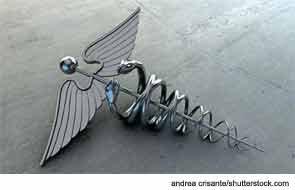Dr. Wei reached out and engaged a few other women faculty at her medical center who were committed to transform the culture so that others wouldn’t have to experience the high degree of burnout she had. She began teaching a course on how to identify burnout, potential low morale and other problems that can contribute to a lower quality of life as an otolaryngologist, and she resurrected the University of Kansas School of Medicine’s Women in Medicine and Science organization. She’s been president of the group for the past three years. “I am now passionate about fighting the realities of what my life and career demands are and want to help others,” she said. “But most of all, I am constantly aware that I am so close to reaching a high degree of burnout again. The more you do, the more you do, so it’s a constant battle.”
Explore This Issue
November 2012Next Steps
Burnout can manifest in personal or professional dysfunction, resulting in medical or surgical errors, drug and alcohol dependency or leaving or changing one’s career, said Dr. Wei. “We must work on supporting ourselves and colleagues by increasing awareness and including it as a competency so we can protect our field.
“Many of us are overachievers and give 100 percent to our patients and everyone else except ourselves,” she added. “We have to educate our trainees, and we must continue to measure degree of burnout through research. Get educated; learn about it. Take courses. Talk to those who have studied, written and—most of all—experienced it. Self awareness is the first step to healing.”

Leave a Reply